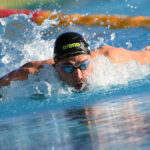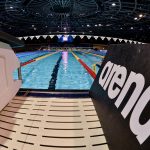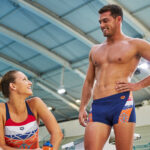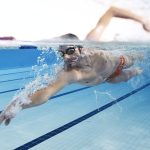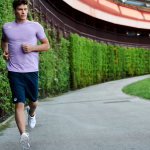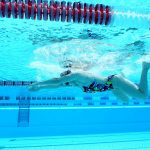Most common ocean plastic seen on the swim
Each side of the island receives ocean debris. The East side is definitely the worst hit, it has the pleasure of bearing the brunt of the prevailing North Easterly winds. These winds bring with them plastic trash from all over the Caribbean. Here you find bottles, lids, plastic buckets, hair clips, flip flops, shoes, shampoo bottles and often larger objects, such as building materials and small boats.
On the North side of the island you will see a lot of bottled beverages, some with the labels still on, this is interesting as you can see almost exactly where products are coming from. We can tell alot of the rubbish comes from Haiti and Jamaica. These countries, like Cayman, have less than ideal waste disposal solutions. When storms hit, any trash that is not secure is going to end up in the ocean and then onto beaches.
7 mile doesn’t get too much plastic on the beach. There are two reasons for this:
- The shape of the island means that this area is protected from the winds blowing from the East.
- The hotels and condo complexes have staff who go out every morning to pick up anything that has come ashore.
With this curated appearance, it can lead to some folks not seeing the real problem. It is only when you get to the other shore lines that the issue is blatant. The island is SO lucky that Plastic Free Cayman organises beach clean ups.
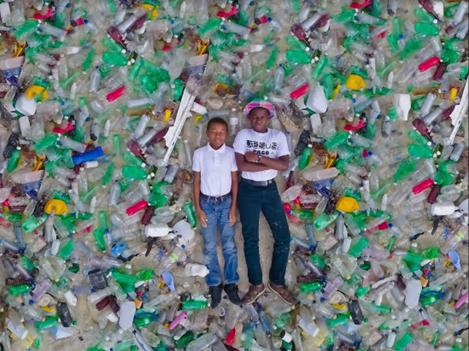
The most prevalent plastic trash in Cayman:
1) Plastic cups and cutlery from bars
These items are discarded with huge frequency along 7 mile beach. Bars are still using single use plastic for every beverage consumed on the beach. This could be resolved if hotels, bars, and restaurants implemented a deposit scheme, to use a reusable cup that could even be made out of beach plastic. Every take out order is also supplied with many sets of plastic cutlery. A Lot of it ends up in the sea, even when things are disposed of respectfully they will end up in landfill which is less than ideal.
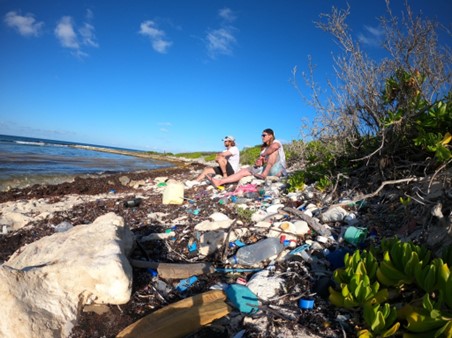
2) Shoes, flip flops and other lost souls
I did not expect to see so many shoes! Where are the owners? Where is the other shoe? We will never know. But what we do know is that they float until they are covered in life forms (barnacles and algae), once they are weighed down enough they will sink and add to the layer of heavy trash at the bottom of the ocean. Take care of your shoes folks! While they still float they will be transported across the oceans to beaches like the ones here in Cayman.
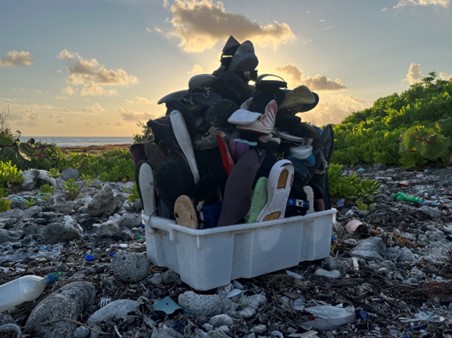
3) Bottles and bottle caps
Plastic bottles end up on beaches for so many different reasons. Some float from other countries, some are left behind by local beach goers, some are from fishermen using them as a way to locate their quarry. Some fishermen will hook a shark, tie floating plastic bottles to it, then come back later when they have the appropriate tools to kill their catch. Sometimes the sharks will be forgotten about and will struggle to survive while hooked to these floats.
Bottle caps are made from harder plastic than bottles and that is why you see so many more on the shore line. The thin plastic used to make the container is easily smashed up by the waves creating a ton of toxic micro plastic.
4) Unrecognisable fragmented plastic
This is the most common scene here in the Cayman Islands. Some of the trash has been blown for miles and miles to land on the soft sandy beaches here. In this time it will be scorched by the sun, beaten, and eroded into smaller and smaller pieces. Often fish mistake these fragments as food. The plastic then gets stuck in their stomachs and will eventually cause the animal to die.
This is not a rare scenario, it is now rare to find an ocean animal that did not die of these causes.
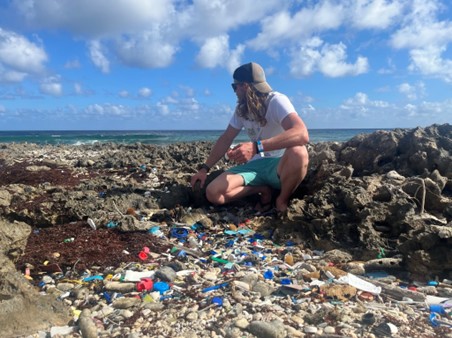
5) Fishing waste
Fishing waste is the primary debris found on the beaches back home in Dorset. It is not as common here. This could be because there is much less commercial fishing that goes on in these waters. Any waste of this kind that is collected is normally just a single line and hook. Even these individual cases can add up. Always take your used stuff home with you and dispose of it properly.
The kinds of plastic we see on the beaches here reminds us of ways that we can avoid adding to it. When you need to make a purchase, rather than making the same choices that you have done so far, take a look around. Is there a zero waste alternative? The world is moving in the right direction but we are a long way from finding a cure. Do what you can, be conscious and make good choices.
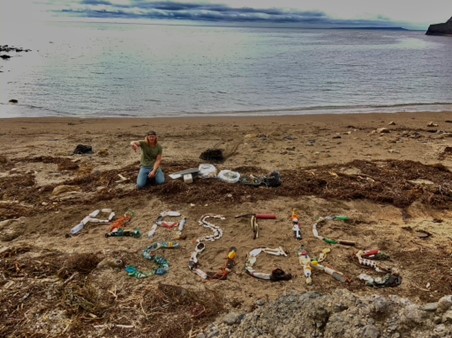
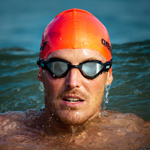
Written by:
Oly Rush
Hey, my name’s Oly Rush, I'm a swimmer, ocean advocate and environmental campaigner, and I love what I do! From a very early age I was surrounded by water, I trained as a competitive swimmer and summer holidays were often spent on the coast, camping in Cornwall. I’d be in the sea all day body-boarding, then playing in the rock pools, marvelling at the wonderful sea creatures! I couldn't seem to get enough! In the mornings I wake up to the sound of the waves crashing on the rugged coastline, and fall asleep at night listening to them. I was then and still am, drawn to the ocean. Spending all this time around the sea and along the coastline I've been increasingly aware of the huge issue that is plastic pollution. There are many issues our planet is facing and I believe plastic pollution is a great place to start the change that is needed. It's easy to get involved in actively helping to clean up and reduce our use. It can be the very catalyst we need to help us look at other areas of our lives and the impact they might be having on this fragile, beautiful planet. In recent years I've been aiming to raise awareness about plastic pollution through one of my passions, distance swimming. The swims have been growing year on year, each getting longer and harder but in doing so also reaching more people, creating the ripple effect needed to combat such a mind boggling issue. I have tried to slow my pace of life down as much as I can, however I'm currently juggling between earning enough to pay the bills, renovate my house, setting up a charity, regular beach cleans and training for some rather daunting awareness swims. The slowing pace of life isn't all that successful but it's one heck of a journey! I guess if I could sum it up in one sentence I'd say this - 'I want to enjoy my short existence on this planet but tread as lightly as I can, allowing space for other creatures to also thrive.' You can find me on Instagram as @_projectplanet_

